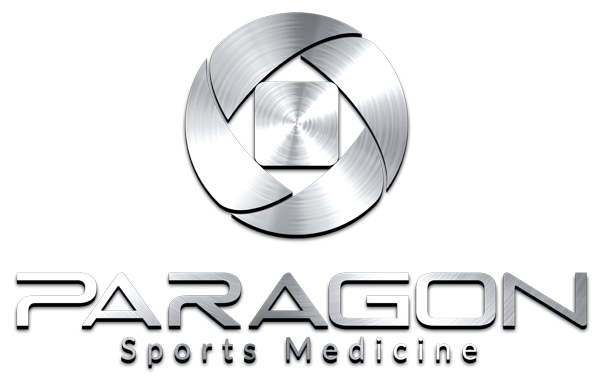Why Paragon?
Our Approach
As Atlanta’s only non-surgical sports medicine practice, Paragon Sports Medicine strives to be the model of excellence from initial consultation and diagnosis through treatment. Our team of sports medicine specialists understand how difficult navigating the healthcare system can be. At Paragon Sports Medicine, we attempt to remove the frustration by treating injuries swiftly and correctly, avoiding unnecessary surgery, and making the right referral for each patient. Our network of Physical Therapists, Surgical Specialists, Neurologists, Physiatrists, Chiropractors, and Primary Care Specialists allow us to build the perfect team to treat your injury and provide an ongoing sports medicine team for your future.
We provide customized medical care focused to your needs- not just your injury. Dr. Garten takes into account your lifestyle, background, interest, and location in addition to your medical problems. He utilizes this information, along with his medical expertise, in conjunction with his numerous relationships with reputable, quality healthcare providers to formulate the right plan for you.
What are Sports Medicine Specialists?
What is the difference between a Sports Medicine Specialist and an Orthopedic Surgeon?
What is the difference between a Sports Medicine Specialist and an Orthopedic Surgeon?
Both physicians undergo specialized training in musculoskeletal medicine. Sports Medicine Specialists focus on the non-surgical treatment of musculoskeletal conditions. Orthopedic surgeons are trained in the surgical treatment of these conditions; however, approximately 90% of all sports injuries are non-surgical.
Common examples of non-operative musculoskeletal conditions include:
- Acute injuries (ankle sprains, muscle strains, knee and shoulder injuries, and fractures)
- Overuse injuries (tendonitis/tendinosis, stress fractures, rotator cuff impingement)
- Medical and injection therapies for osteoarthritis and chronic tendon injuries (such as tennis elbow, plantar fasciitis)
The Sports Medicine Specialist helps patients maximize function, minimize disability, and reduce the time away from sports, work or school. They can maximize non-surgical management, assist in appropriate referrals to physical and occupational therapy, and if necessary, accelerate referral to the best surgeon for a patient’s problem.
Do Sports Medicine Specialists only treat competitive athletes?
Do Sports Medicine Specialists only treat competitive athletes?
What type of training is required to become a Sports Medicine Specialist?
What type of training is required to become a Sports Medicine Specialist?
A Sports Medicine Specialist is a physician who:
- Is Board Certified in Emergency Medicine, Family Medicine, Internal Medicine, Pediatrics, or Physical Medicine and Rehabilitation
- Has obtained 1-2 additional years of training in Sports Medicine through an accredited Fellowship Program in Sports Medicine
- Has passed a national Sports Medicine certification examination allowing them to hold a Certificate of Added Qualification in Sports Medicine (CAQSM)
- Further adds to his or her expertise through continuing medical education activities and recertification via re-examination every 10 years
- This rigorous process was instituted by the specialty medical board to distinguish certified Sports Medicine Specialists from other physicians without specialized training.
In addition to musculoskeletal education, Sports Medicine Specialists have additional training in the non-musculoskeletal aspects of sports medicine. Common examples are:
- Sports Concussions and other head injuries
- Athletes with chronic or acute illness (i.e. mononucleosis, asthma or diabetes)
- Heat illness
- Nutrition, supplements, ergogenic aids, and performance issues
- Overtraining and Injury prevention
- Exercise prescription with recommendations on safe strength training and conditioning exercises
- “Return to Play” decisions in the injured or sick athlete
 Most Sports Medicine Specialists also serve as Team Physicians. These physicians must fulfill published qualifications with the following responsibilities:
Most Sports Medicine Specialists also serve as Team Physicians. These physicians must fulfill published qualifications with the following responsibilities:
- Pre-participation physical examinations
- Injury assessment and management
- Education, counseling and management of sports-related and general medical needs of athletes
- Sports psychology issues
- Substance abuse issues
- Special populations (geriatric, disabled, youth, etc)
- Coordinating care with other members of the sports medicine team (certified athletic trainers, physical therapists, chiropractors, other medical and surgical specialties, and other ancillary personnel)
- Communication with certified athletic trainers, coaches, administrators, as well as athletes and their families.
Please visit the American Medical Society of Sports Medicine for more information on Sports Medicine Specialists